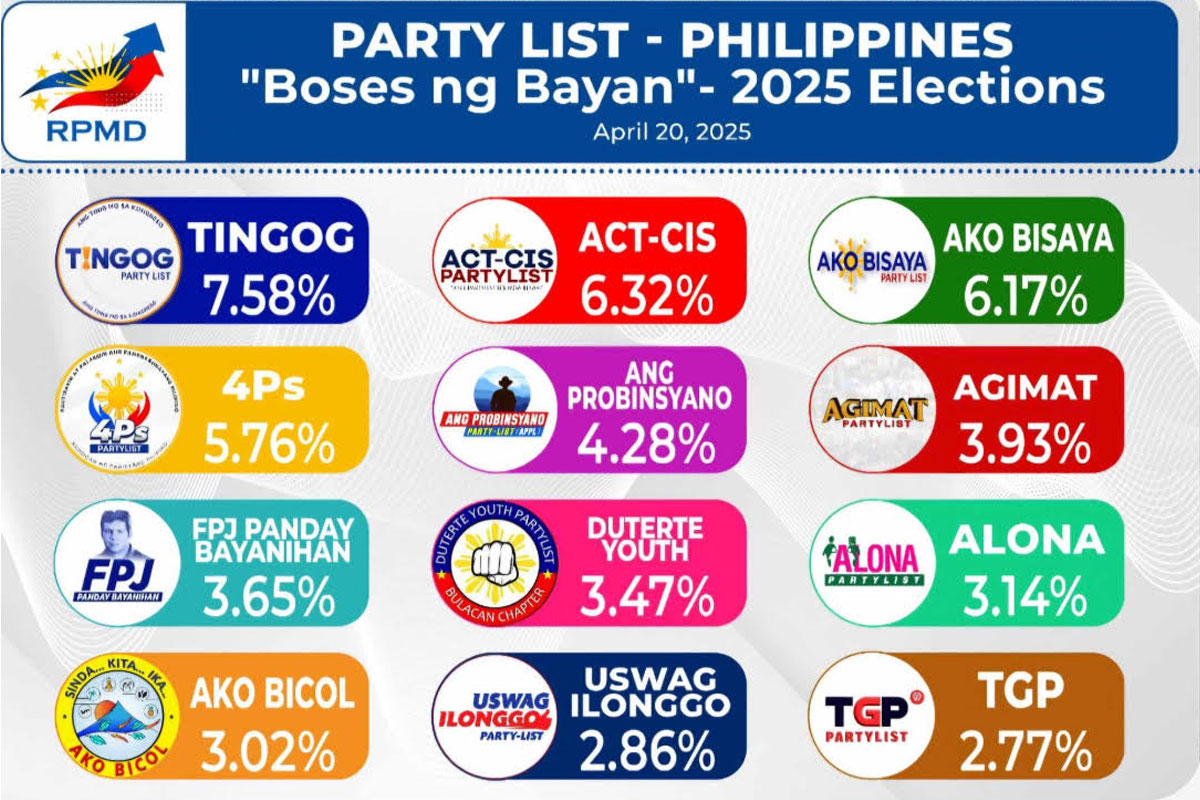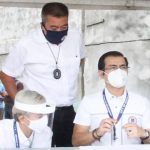
Repopulation of hogs in ASF-free areas on
REPOPULATION of hogs in areas where there are no reported cases of African Swine Fever (ASF) for at least 90 days, has already started with the distribution of “sentinel” piglets.
Agriculture Secretary William Dar said the sentinelling is part of the government’s swine repopulation program to increase hog production and subsequently stabilize the supply and prices of pork.
The distribution of sentinel piglets will be done initially in eight regions wherein 8,000 small hog raisers are expected to benefit.
“A science-based approach, the sentinel protocol ascertains if a virus or disease is still present in an area. We will initially implement it in eight regions (1, 2, 3, 4A, 5, 11, 12, and CAR),” Dar said.
Dar disclosed that the sentinelling and repopulation program is currently beinb implemented in the province of Batangas, where they also launched early this year the ‘Bantay ASF sa Barangay’ or BABay ASF program, in partnership with hog raisers’ groups, Batangas provincial government, Lipa City and several municipalities, private sector, academe and veterinary associations.
“We are thankful to the provincial and municipal LGUs of Batangas for taking the lead in piloting the BABay ASF and hog repopulation program, also known as the Integrated National Swine Production Initiatives for Recovery and Expansion (INSPIRE),” he added.
Meanwhile, in her report to Dar, DA-National Livestock Program(NLP)director Ruth Miclat-Sonaco, aside from Batangas, the sentinel protocol will be implemented in Benguet (Cordillera Administrative Region) and Camarines Sur (Bicol region).
Somaco disclosed that of the three provinces, Batangas is undertaking a more extensive implementation of the sentinel protocol as it hopes to regain a “pink zone ASF status” sometime in May 2020.
For her part, DA 4A director Vilma Dimaculangan said the twin BABay ASF and hog repopulation program is gaining momentum in Lipa City and four municipalities of Nasugbu, Cuenca, Malvar and Taysan.
DA-4A livestock program coordinator Dr. Jerome Cuasay, on the other hand, said they will distribute 400 sentinel piglets — at least 60-day old, weighing 15-20 kg each — to hog raisers in 18 barangays in Lipa, Nasugbu, Cuenca, Malvar, and Taysan. These are in addition to those earlier distributed in eight barangays in Lipa.
In Benguet, Sonaco said the DA-NLP has already distributed 62 sentinels in 18 barangays in 6 municipalities. In Camarines Sur, 56 sentinels were distributed in 26 barangays in two municipalities. She added that CAR and Region 5 are expected to be “released from quarantine” before June 2021.
In Batangas, Cuasay said more barangays would be “released” from ASF quarantine, as these had no reported ASF incidence in the last 90 days or more. Last year, at the height of the ASF outbreak in Batangas, 72 barangays were affected, he added.
Cuasay added that the “release or cleansing” process starts with the proper culling and depopulation of all hogs in ASF “red or ground-zero” zones, which thereafter undergo a thorough 30-day cleaning and disinfection to lessen the risk of residual ASF virus.
After that, the farms should successfully pass another 30-day phase, during which bioassay or environmental sampling will be conducted at two-week interval. If found negative, the farm qualifies to receive sentinel animals that will be grown for 40 days.
Finally, BABay ASF technical team will conduct at least two PCR tests in each farm. When found negative, the farms and the whole barangay is “released” from ASF quarantine status.
“The DA will provide the sentinel package while the LGUs will provide the technical assistance and monitoring. Participating hog raisers will, receive three to five ‘sentinel’ piglets, including feeds and supplies such as veterinary drugs, biologics and anti-viral agents, during the six-month fattening period,” said Dar.
All sentinelling program participants — hog raisers, farm owners and personnel — should undergo training on biosecurity, and that farm facilities and should conform with the minimum biosecurity standards for both smallhold and commercial farms.
Further, sentinel animals must be sourced from ASF-free farms and must comply with their respective province’s policies for incoming stocks from outside the province.
“The only way we will be able to make the hog sentinelling successful is through the implementation of strict biosecurity measures in the farm, which is the primary duty of swine raisers to prevent the ASF virus from entering the farms,” Dar said.




















